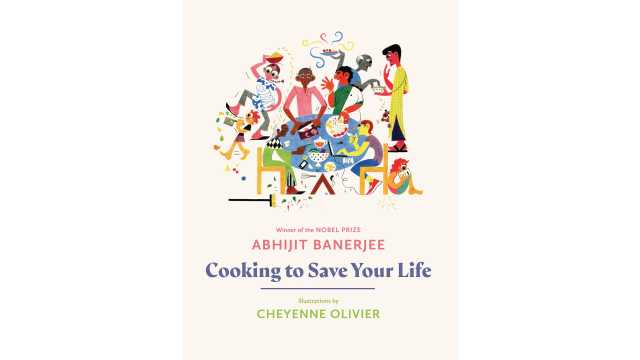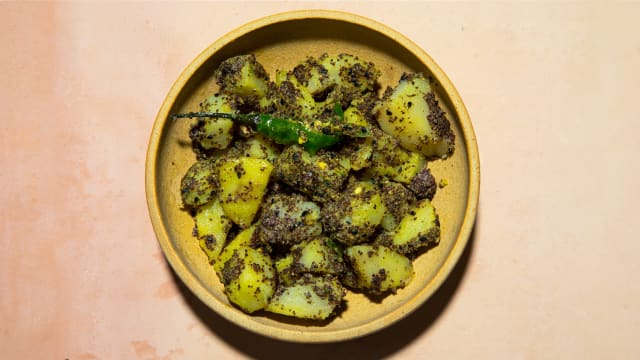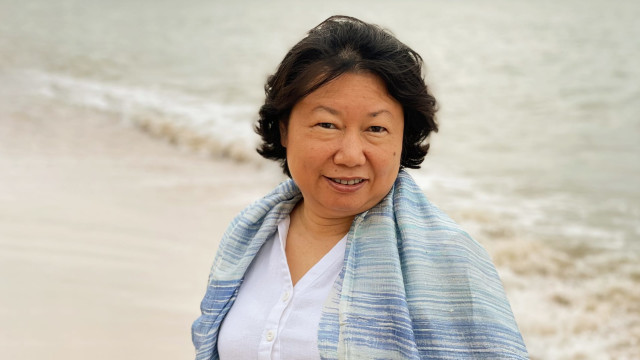Q&A with Abhijit Banerjee

Abhijit Banerjee, who won the Nobel prize for economics in 2019, joins the rare club of Nobel laureates to have written a cookbook (Pearl S. Buck got there before him). His first cookbook, Cooking to Save Your Life, was released in 2021 and is a collection of recipes to suit various occasions.
The book provides hacks and tips to serve a meal to either your frenemy or that lost, past love who just walked into your home. Beyond the easy, bantering tone of the book, Banerjee slips in insights into how cooking and eating are purposeful and important human expressions of contentment, joy, and gratitude.
Banerjee confesses that he has been “interested in food since I can remember” and since his teens he has cooked thousands of meals for friends and family. For him, beyond recipes and measures, cooking is also about how to “prepare for the moment” when things go well (or not) with a dish.
The Nobel laureate talks about how he loves thinking about food — starting from a recipe that leads him to cooking and planning a meal; the friends he has fed; and the stories and sounds of laughter around a table.
Roundglass Food: You talk about food and “living consciously” in the book. How does this apply to cooking and wellbeing?
Abhijit Banerjee: Cooking and eating are areas where we are constantly confronted with choices. There are the obvious connections between meat, methane and being humane to animals that are hard to duck. We often pigeonhole eating and cooking into tradition or adventure, but it is what we do day after day.
RG Food: What’s a mindful practice you follow while cooking or eating?
AB: Personally, I eat everything, but I see the point of being reflective about it. That is why I try to cut corners, draw the line at certain times, and exercise choices when I can.
RG Food: What words of wisdom do you associate with food?
AB: There’s a line in my book, “A meal must generate the greatest good for the greatest numbers.” Sharing food involves where we draw the limits to whom we feed, and how we do it — especially in India. Traditionally, we are a hospitable people, despite our parochialism, because we want to be generous in the moment. It’s okay if you show up with extra people to a dinner, because the hostess will serve food to your guests and your driver who is waiting outside in the car park.
RG Food: What’s your fondest food memory?
AB: I remember that at home, in Kolkata, it was commonplace for someone to turn up unannounced at my grandfather’s place. Even if my grandfather wasn’t home, the person would be fed an omelet and tea or a sweet, and he would wait silently. He would perhaps read the newspaper, and then when he felt the wait was over, would walk away without a word to anyone. It is an expression of generosity that anyone who walks into your home deserves food, which is not perhaps found in the Western world. It is important culturally and we must preserve it.
RG Food: What aspect of cooking do you find relaxing?
AB: The act of cooking and involvement with food, from planning to cooking to eating, are healthy ways to distract myself.
RG Food: What does “the quiet of mindful eating” mean to you?
AB: It is nice not to do anything while eating, even while eating alone. If I can name one person, it would be Cheyenne Olivier, our au pair, and the illustrator of Cooking to Save Your Life. Even if she chose to make a simple breakfast of fruits, or a salad, it would be a feast for the eyes to see the care she showed in slicing the fruits and arranging the medley of colors. Then, to sit down to eat, one piece at a time, without distraction. From the production of food to the consumption of food, she is an exemplar of mindful eating.
RG Food: What’s the most important meal of the day for you?
AB: Dinner. I am not much of a breakfast person, but I make a conscious effort every day over preparing and eating dinner with my family. I am often disappointed when it is not good.
RG Food: As an economist what words of wisdom do you associate with food?
AB: Food is often discussed in economic studies in terms of production and not the pleasure of eating. We ignore the fact that eating is an enjoyable experience for the poor, too.
Key Takeaways
- Cooking is a mindful activity.
- Food brings joy to all alike.
- Reflect on planet and individual health.








